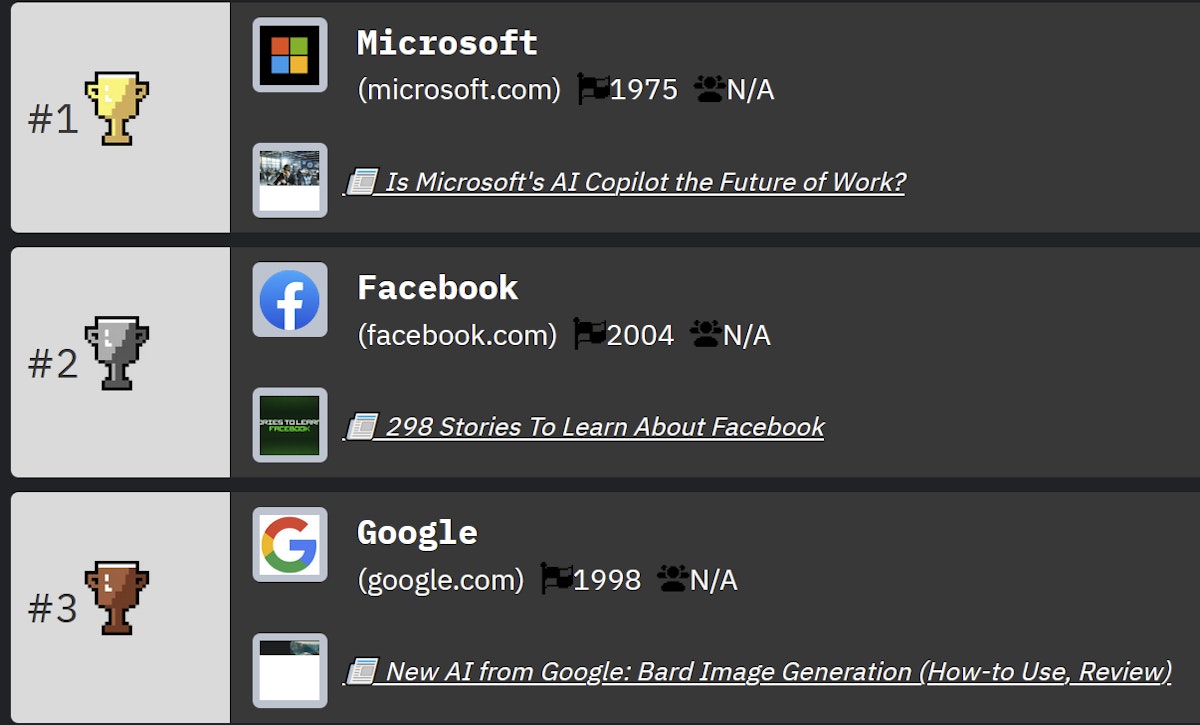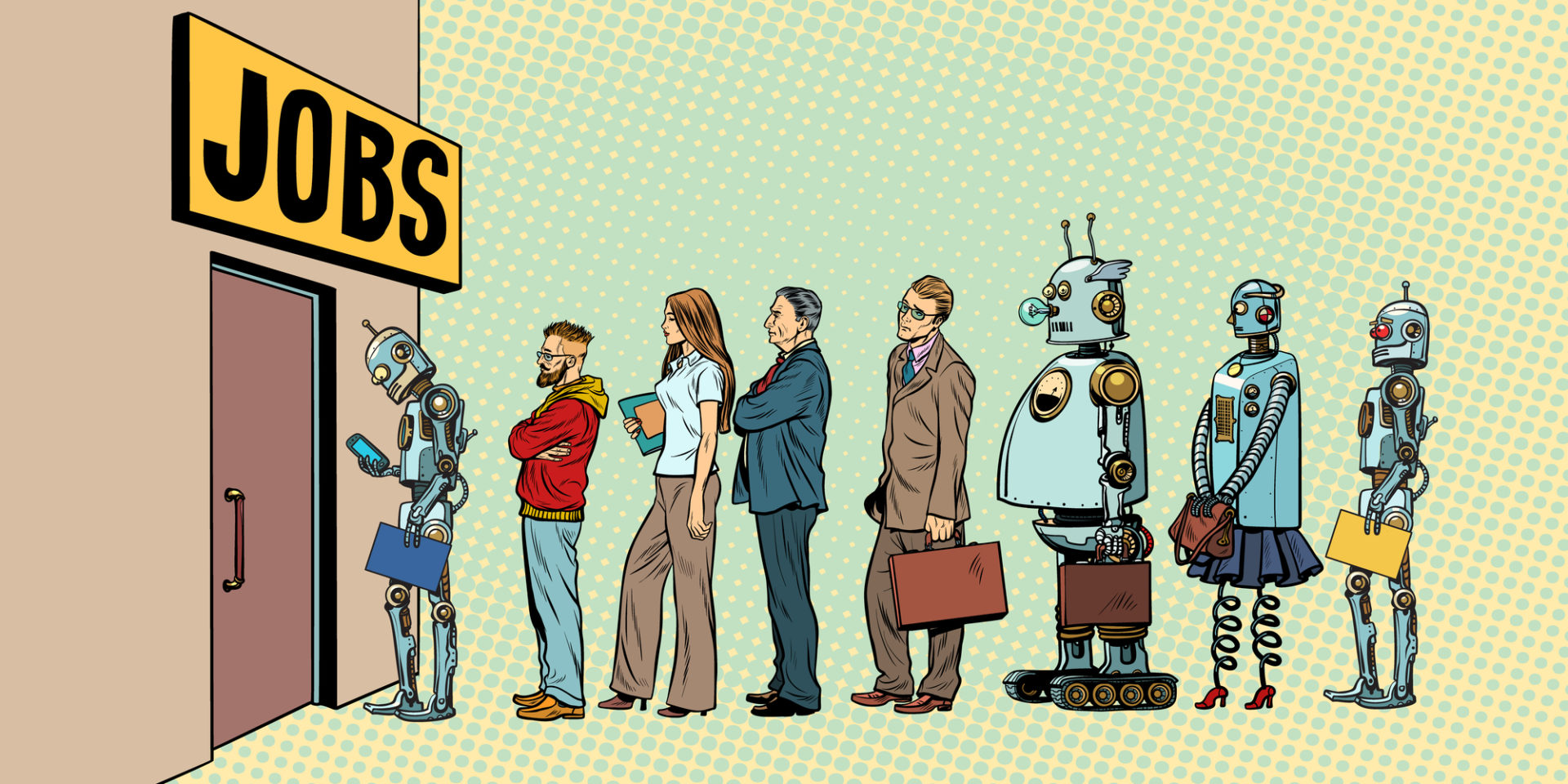Ooh boy.
Being in tech the past couple of years was bad enough. Working for tech in 2024 is worse still.
For anyone that thought the great layoffs of the yesteryears were over, a string of downsizing that began at the start of 2024 should put that notion out of the window. In some ways, these aren’t job cuts as much as a realignment to the recent advancements in tech, particularly generative artificial intelligence.
Yes, big tech has been realigning itself, letting go of individuals in areas it thinks aren’t important to their bottom line while posting jobs in segments that offer them growth. You’ve got your usual suspects, Microsoft, Meta, Amazon, Google, but also others, such as eBay, Unity, and even Snap, all of which have announced layoffs ranging from hundreds into the thousands.
So what the heck is going on?
The last commonly held belief for layoffs was that businesses hired way too aggressively during the COVID-19 pandemic, and after world governments decided it was OK to let citizens move about freely, said businesses realized that they weren’t making nearly as much money as they did when everyone was forced to shut themselves in. So naturally, companies decided to trim the fat and let go of people across divisions.
That notion is still true: tech businesses still feel that they’re larger than they should be, and feel that there’s still space to further trim themselves down to make themselves lucratively profitable.
But (and there’s always a but!), artificial intelligence has now sparked a demand for professionals that can tame the beast and help make products that companies can then sell to others, or, just make them better at what they do. Hiring specialized professionals isn’t cheap, so of course, companies are letting go of people that don’t necessarily possess the skills that they’re looking for while bringing on those that do. We’re not certain how many professionals in marketing equals a single machine learning engineer, but if we had to do the math, it would be like 5x in marketing = 1x ML engineer? Who knows!
So is this the great AI reckoning? The takeover everyone feared? Not necessarily. The US economy is still healthy, with unemployment at manageable levels. Inflation is a problem, but Federal Reserve Chair Jerome Powell has indicated that they’re reigning inon the issue. Which means that while some jobs are being made redundant, others are springing up all the time.
P.s. HackerNoon offers a job board that readers can use to look for their next job.
Microsoft ranked #1 on HackerNoon’s __Tech Company Rankings__this week, followed by Facebook at #2, Google at #3, and Amazon at #9.


👋 You’re reading HackerNoon’s Tech Company News Brief, a weekly collection of tech goodness that combines HackerNoon’s proprietary data with internet trends to determine which companies are rising and falling in the public consciousness. Subscribe hereto receive the complete newsletter in your inbox every Tuesday.
Meta Signals Good Times With 2023 Earnings 🤑
Job cuts aren’t the only reasons why big tech has been in the news lately. With 2023 ending, investors have been wondering how tech companies fared in the last quarter of the year. Their curiosity was answered with a jam packed earnings calendar last week, with nearly every company worth their salt giving a glimpse into their books for the most recent quarter.
Meta’s results stood out, so much so that its stocks jumped a whopping 20%, making it valuable by an additional $200 billion in a single stock trading session. According to reports, this is the most a company has added to its market cap in a single day in Wall Street’s history. So how much did the social media company make in the last three months of 2023? Well.. Q4 revenue was up 25% year over year to $40.11 billion, but the standout was earnings: the company tripled its net income to $14.02 billion, or $5.33 per share, from $4.65 billion, or $1.76 per share, in the same quarter of 2022.
That is a massive jump, and Wall Street ate it up like a hungry hyena. Better yet, Meta initiated a dividend for the first time in its history, looking to pay $0.50 per share to investors on March 26, with plans to continue rewarding shareholders by distributing some of its profit moving forward.
Over at Alphabet, the Google parent saw Q4 revenue of $86.31 billion, up 13% year over year, and net income of $20.69 billion, or $1.64 per share, up from $13.62 billion, or $1.05 per share, in the same quarter of 2022. Not bad!
Meanwhile, Apple posted quarterly revenue of $119.6 billion, up 2% year over year, and quarterly earnings per diluted share of $2.18, up 16% year over year. Microsoft, which competes against Apple for the position of most valuable company in the world, bookedan 18% year over year increase in quarterly revenue to $62 billion and a 33% increase in net income to $21.9 billion, or $2.93 per share, when compared to the preceding, year-ago quarter.
And where does that leave Amazon? The ecommerce giant said Q4 net sales increased14% to $170 billion while net income increased to $10.6 billion, or $1.00 per share, compared with $0.3 billion, or $0.03 per share, in the same quarter of 2022.
Overall, not a bad quarter for tech companies.
Elon Musk Hasn’t Given Up On Those Brain Implants 🧠
While Tim Cook (and to an extent Mark Zuckerberg) are interested in getting consumers to strap on big pieces of tech for “immersive” experiences, fellow billionaire Elon Musk has other plans.
In a development that raised some eyebrows here at HackerNoon, the world’s richest man said his healthcare startup Neuralink had installed a brain implant on a human subject. And yes, the subject is alive and well, according to the Tesla/X/Everything™ CEO.
Neuralink’s brain chips could be a big deal if the tech has any actual use or promise; the time it took the company to actually receive the US Food and Drug Administration’s approval to install its brain implant in a human was quite long, ranging in years, but finally came sometime in 2023.
Assuming the tech works like it’s supposed to, the hope is that it would eventually be able to help people overcome paralysis and a host of neurological conditions. So far, the goal is to get humans to be able to control a computer cursor or keyboard using their thoughts alone.
It’s worth mentioning that Neuralink was testing these implants on monkeys previously, most of which are reported to have suffered paralysis, seizures and brain swelling after their surgery.
Yikes!
In Other News.. 📰
- Craig Wright Denies Forging Evidence He’s Satoshi on Day 2 of COPA Trial — via CoinDesk
- Microsoft CEO Nadella on AI LLM race: ‘We are waiting for competition to arrive’ — via TechCrunch
- Meta to add ‘AI generated’ label to images created with OpenAI, Midjourney and other tools — via CNN
- Microsoft says will help 2 million Indians in small cities learn AI skills — via Reuters
- Everybody wants to audit AI, but nobody knows how — via Axios
- Meta is trouncing Snap in Digital ads — here’s why — via CNBC
And that’s a wrap! Don’t forget to share this newsletter with your family and friends See y’all next week. PEACE! ☮️
— Sheharyar Khan, Editor, Business Tech @ HackerNoon
*All rankings are current as of Monday. To see how the rankings have changed, please visit HackerNoon’s Tech Company Rankings page.
This article was originally published by Sheharyar Khan on HackerNoon.












